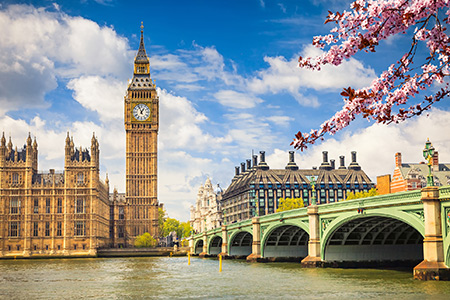Barring a resignation from one of the final Conservative leadership candidates, the new leader and UK Prime Minister is expected to be announced on 5 September 2022. Many headlines have appeared about the ideas and promises coming from the two contenders, Rishi Sunak and Liz Truss, and whoever wins will have their work cut out for them. Britain currently faces the worst cost of living crisis since the 1950s as energy bills continue to drive up inflation, and any new Prime Minister will surely have this high on their minds. Yet how might a new UK leader bear upon your financial plan?
How will either leader help me with my energy bill?
Of course, there is no guarantee that politicians will do what they say they will do. In 2021, for instance, the Johnson Government broke a manifesto pledge not to raise taxes during the parliament by announcing a £12bn-a-year tax rise intended to address NHS backlogs caused by the pandemic. However, taking the leadership candidates’ proposals at face value, what could the implications be for households?
Rishi Sunak has pledged to scrap the 5% VAT rate on household energy, for 12 months, if the energy price cap is raised over £3,000 in October 2022. This could reduce household energy bills by an average £160. This appears to be on top of the £400 grant promised in October to everyone, and the one-off £650 payment to the UK’s poorest 8m households.
However, the price cap is expected to rise another £830 in October – possibly taking it up to £3,582 per year – and could even exceed £5,000 per year in April 2023. Liz Truss has not made similar promises to Rishi Sunak, calling them “handouts” and instead insisting that cutting taxes will put more money in people’s pockets to help them cope with higher living costs.
Unfortunately, whoever wins the leadership election, households across the country are likely to face much higher energy costs in 2022-23. So, the best way to prepare your financial plan is to ensure you can maintain a healthy gap between your income and expenses. However, with costs rising this is obviously easier said than done. It may simply be prudent to review your expenses to see you could make any savings and try and maintain your emergency fund for any unforeseen circumstances.
Will my tax bill be affected by whoever wins?
Rishi Sunak has said he will maintain a planned rise in National Insurance and that he will put up the rate of corporation tax to 25% (from 19%) next year. However, he has also suggested cutting the Basic Rate of income tax from 20% to 16% by the end of the following parliament (e.g. no later than Friday 24 January 2030). Needless to say, households are unlikely to see their tax bill go down under these proposals anytime soon.
Liz Truss has announced £30bn of tax cuts if she wins. These include scrapping the planned rise in National Insurance and corporation tax – possibly taking a bit of financial pressure away. She also wants to do away with the “green levy” which amounts to about 8% of a household’s energy bill (about £153 per year). She might bring in a change to inheritance tax rules, which could have an impact on your estate plan – although not much detail is available now.
What about the possibility of a recession?
Many forecasts are predicting a UK recession as early as the end of 2022. However, there is a chance that this could be avoided due to strengths in the UK economy (such as its tight labour market). Whilst much of the outcome will depend on global forces that may be outside the government’s control e.g. rising food and energy prices, whoever becomes Prime Minister will also have levers at his/her disposal to influence things.
Here, analyses differ about how the candidates’ ideas could affect a possible recession. Rishi Sunak, for instance, announced a £15bn package earlier in the year to support households hit by the cost of living crisis. Some argue that this will not be enough to stave off a recession, but others believe that the stimulus could amount to 0.6% of GDP and could be enough to avoid two negative quarters of GDP growth.
Liz Truss has claimed that her planned tax cuts can help avoid recession. Here, the focus seems to be more on promoting growth through supply-side reform. However, some argue that this approach mirrors Conservative prime minister Edward Heath’s “dash for growth” policy in the 1970s, which was followed by record inflation. Whoever wins the contest, however, the precedent set by UK governments and the Bank of England since the 2007-8 Financial Crash, when a crisis occurs, is to inject large amounts of money into the economy (“quantitative easing”). Departing from this new orthodoxy, although possible, still seems unlikely at this stage.
The good news is, for workers, the UK is still very much an “employees market” – meaning there is not job insecurity at large, right now. There were 3m job vacancies recorded in June 2022, with not enough people looking for work to fill them. If a recession does come, therefore, it is likely to be a very unique one (given that recessions have, historically, been accompanied by high unemployment and UK employment currently sits at a high of 75.7%).
Invitation
If you would like to discuss your financial plan and retirement strategy, then we would love to hear from you. Get in touch with your Financial Planner here at Vesta Wealth in Cumbria, Teesside and across the North of England.
Reach us via:
t: 01228 210 137
e: [email protected]
This content is for information purposes only. It should not be taken as financial or investment advice. To receive personalised, regulated financial advice regarding your affairs please consult your Financial Planner here at Vesta Wealth in Cumbria, Teesside and across the North of England.

